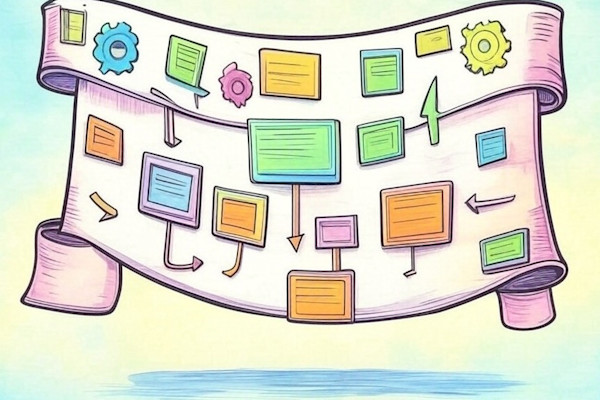
Salesforce CRM: Why it may not be the right choice for your business
Published on: February 18, 2025
Overview
1. Introduction
Salesforce is the undisputed giant in the CRM industry, widely adopted by enterprises across the globe. But is it the right choice for every business? Instead of focusing on why businesses should buy Salesforce, this article takes a critical look at why they shouldn’t. By examining real-world sources, customer reviews, and key evaluation parameters, we will explore the drawbacks that might make Salesforce a poor fit for some companies.
2. Evaluation Parameters
To assess Salesforce comprehensively, we will evaluate it across the following parameters:
Implementation Complexity
Cost & Pricing Transparency
User Experience & Learning Curve
Customization & Scalability
Integration with Other Tools
Support & Customer Service
Performance & Reliability
Vendor Lock-in & Exit Costs
Security & Compliance
User Sentiment (Real Customer Reviews)
3. Detailed Analysis of Salesforce CRM
Implementation Complexity
Salesforce is known for its robust capabilities, but that comes at the cost of complexity. Many companies require specialized consultants or in-house developers to properly set up and configure their CRM.
Setup Time: Lengthy onboarding process.
Technical Expertise Required: Non-technical users struggle with advanced configurations.
Dependency on Third-Party Consultants: High reliance on external implementation partners.
Cost & Pricing Transparency
Salesforce is notorious for its opaque pricing model, which often results in unexpected costs.
Base Licensing Fees vs. Actual Costs: Many essential features require expensive add-ons.
Enterprise Lock-in Pricing: High renewal costs and significant price hikes over time.
Hidden Fees: Additional charges for API usage, automation, and extra storage.
User Experience & Learning Curve
Steep Learning Curve: Users report that Salesforce can be difficult to navigate, especially for those without prior CRM experience.
UI/UX Complexity: Despite recent improvements, many find the interface cluttered.
Training Requirements: Companies often need to invest heavily in user training.
Customization & Scalability
Extensive Customization, but at a Cost: Advanced customization requires developers and Apex coding expertise.
Scalability Concerns: While scalable, customization can lead to performance issues over time.
Rigid Workflows: Customizing Salesforce workflows can be difficult without deep technical knowledge.
Integration with Other Tools
Strong Ecosystem, But Complex Integrations: Salesforce integrates with many tools but often requires middleware.
High Integration Costs: Many integrations require additional purchases or consulting fees.
APIs with Limitations: API limits can throttle data-heavy operations, requiring expensive upgrades.
Support & Customer Service
Support Tiers Create Inequity: Standard support is slow, and priority support requires expensive upgrades.
High Wait Times: Many users report long response times from Salesforce support.
Knowledge Base Overload: Documentation is vast but often overwhelming.
Performance & Reliability
Uptime Issues: Despite high availability claims, Salesforce has experienced significant outages.
Performance Degradation: Large-scale instances often suffer from lag and slow reports.
Data Latency: Real-time data processing can be sluggish in complex implementations.
Vendor Lock-in & Exit Costs
Difficult Migration Process: Moving away from Salesforce is time-consuming and expensive.
Proprietary Architecture: Custom-built applications and workflows may not be transferable to other CRMs.
High Switching Costs: Data export limitations and reimplementation costs make switching a burden.
Security & Compliance
Enterprise-Grade Security, But Complexity in Management: Ensuring compliance requires dedicated admin resources.
Permission and Role Complexity: Managing user permissions can be cumbersome.
Data Residency Restrictions: Organizations with strict compliance needs may face challenges.
User Sentiment: Real Customer Reviews
G2 & Trustpilot Ratings: Salesforce receives praise for features but criticism for cost and complexity.
Common Complaints:
“Too expensive for small businesses.”
“Takes forever to get anything customized.”
“Support is slow unless you pay extra.”
Common Praises:
“Best for large enterprises with complex sales processes.”
“Powerful automation and reporting.”
4. Conclusion: Should You Buy Salesforce?
While Salesforce is an industry leader, it is not the best fit for every organization. Companies with limited budgets, simple CRM needs, or a preference for user-friendly tools may find alternative CRMs like HubSpot, Pipedrive, or Zoho CRM more suitable. Businesses should carefully evaluate whether Salesforce’s complexity, cost, and lock-in risks align with their long-term goals.
Alternatives to Consider
HubSpot CRM: More user-friendly with a free-tier option.
Pipedrive: Simple and effective for sales teams.
Zoho CRM: Cost-effective with strong customization options.
Final Thought
Before investing in Salesforce, consider whether its advantages outweigh the hidden costs, learning curve, and vendor lock-in. Sometimes, being the biggest name in the market doesn’t mean it’s the right fit for you.


